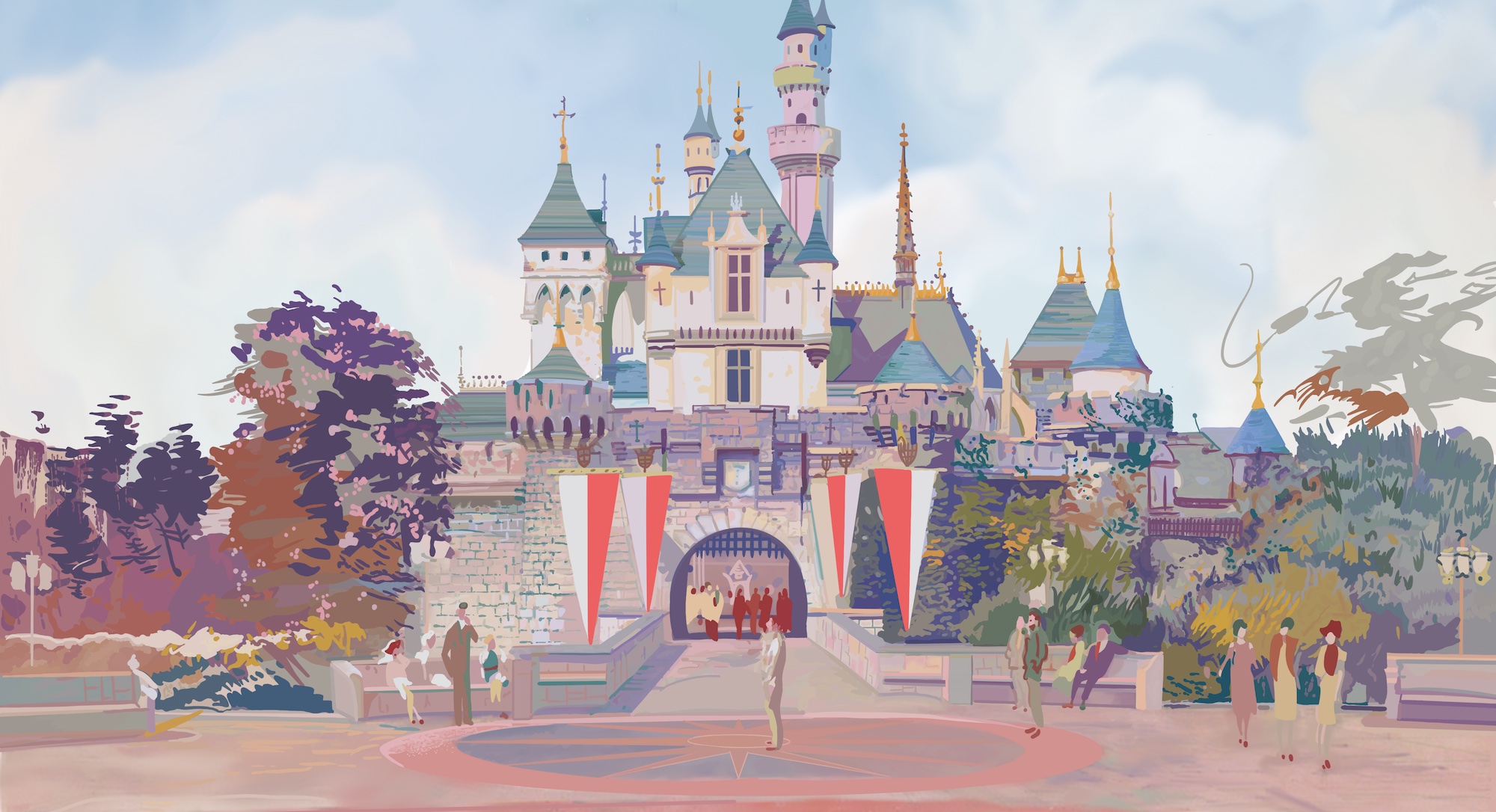
2018’s Fantastic Beasts: The Crimes of Grindelwald picked up a year after the events of the first film, shifting the setting from New York to a 1920s Paris – a visually stunning place and time, to be sure. But The Crimes of Grindelwald was, frankly, the Wizarding World’s first misfire. The film earned just $650 million (the lowest gross by far of the Wizarding World), representing a precipitous 20% drop from the first – a very, very bad omen for the second entry in a pre-approved five-part series. To make matters worse, Fantastic Beasts 2 topped out at a scathing 36% on Rotten Tomatoes, with just 69% of audiences saying they’d recommend it.
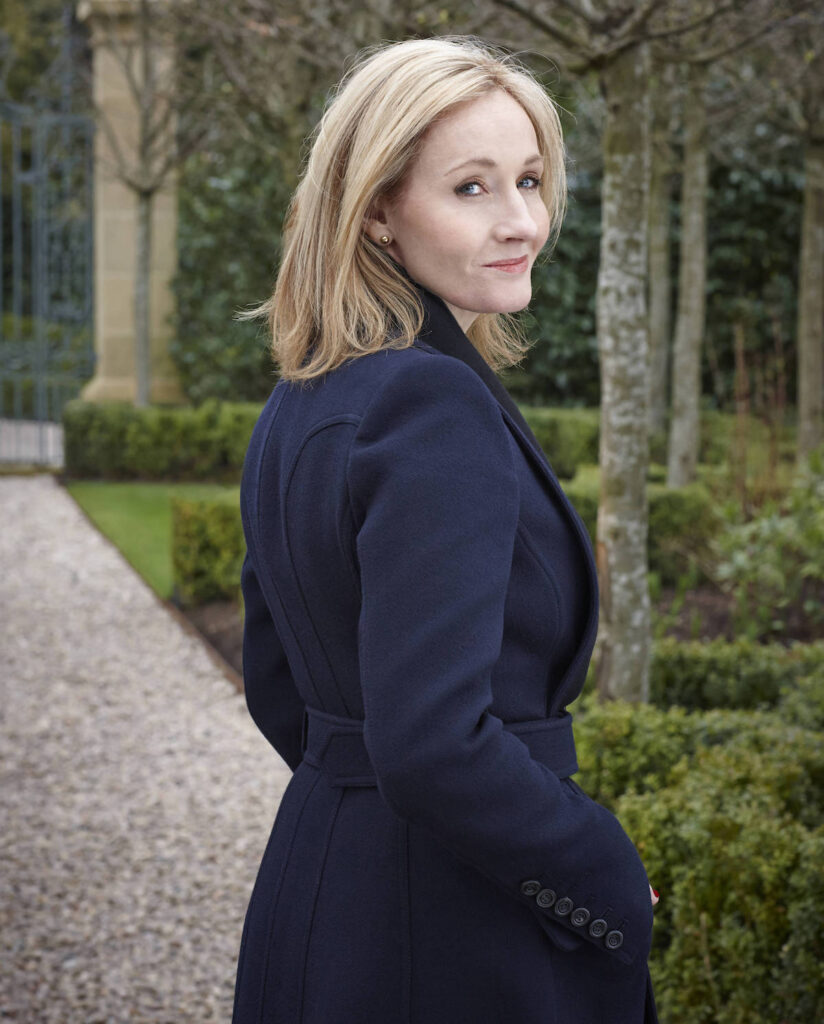
The primary complaint: J. K. Rowling herself. In most book-to-film adaptations (including all eight Harry Potter films), a screenwriter is brought into the production to do the essential work of turning a story into a movie. A screenwriter’s job is to make necessary edits, re-arrangings, and adjustments that make a literary work “filmable,” cutting characters or extraneous scenes, reordering events, rewriting dialogue, and establishing a pace. Even if some of it is to the distaste of fans, it’s the work that’s necessary to condense a 500-page novel that takes weeks to read into a movie that takes two hours to watch.
Writing a story and writing a movie are two very different skills. As she had in the first film, Rowling wrote Fantastic Beasts: The Crimes of Grindelwald alone. But with the growing complexity, cast, and world-building required of a second entry, the story clearly got away from her. It’s no wonder that the film was criticized for its pacing; for its ridiculously huge cast (seriously – look at the movie poster below and try to name even half of the characters); and most damningly, for being (according to Variety) “a cluttered expansion of the Harry Potter franchise” where “rarely is there much tension, or sense of adventure, or any real longing…” Deemed “charmless” and weighed down by a “grindingly complicated” plot, The Crimes of Grindelwald was just… not much fun to watch.
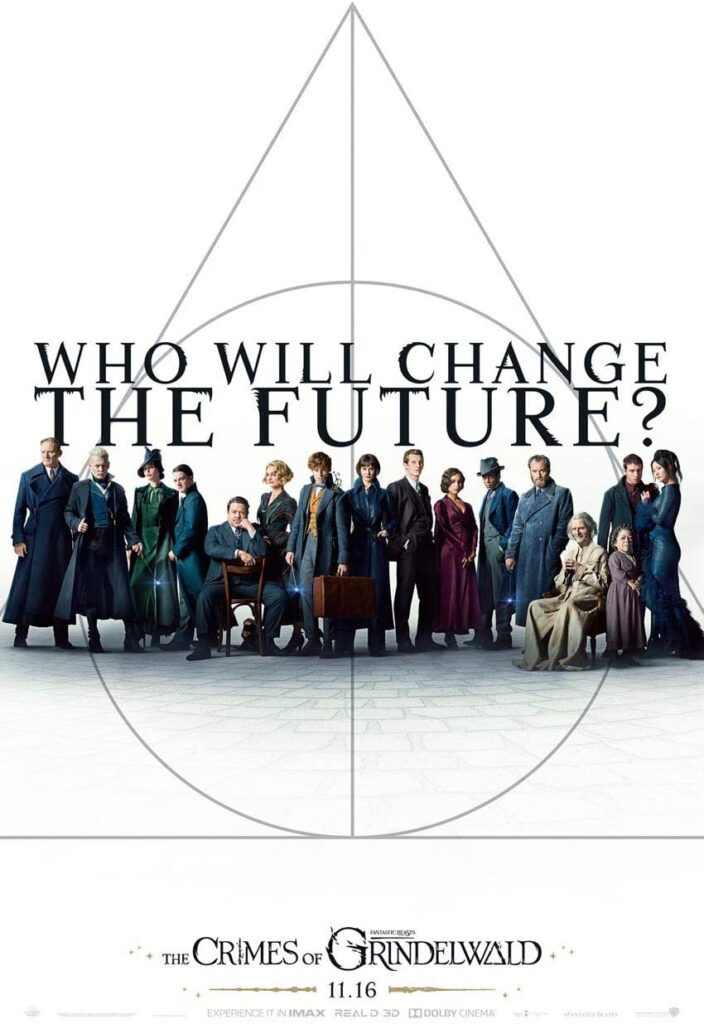
Like George Lucas’ Star Wars prequel trilogy, Rowling’s Harry Potter spin-off ended up being a “slog” defined by tiresome politics, forgettable locales, an almost hilariously-huge cast of well-acted but largely-forgettable characters, and buckets of backstory baggage invented to flesh out a world that we already innately understood, answering questions that no one was asking. About the only thing the film didn’t have was fantastic beasts!
But to our thinking, the film’s issue ran even deeper. Variety’s Andrew Barker famously suggested that film felt like “watching one chess piece after another being moved into position.” That’s frustrating, because in Fantastic Beasts, fans imagined – and genuinely hoped to see! – a legitimately new corner of the Wizarding World. After all, surely something of significance has happened in the history of Wizardom that doesn’t ultimately end up connecting to Harry Potter! Certainly, there can be a low-stakes story set in the Wizarding World upon which the fate of all Wizards do not rest! We have to be believe that there can be a fun, adventurous pulpy genre pic set in the Wizarding World that doesn’t ultimately take us back to Hogwarts.
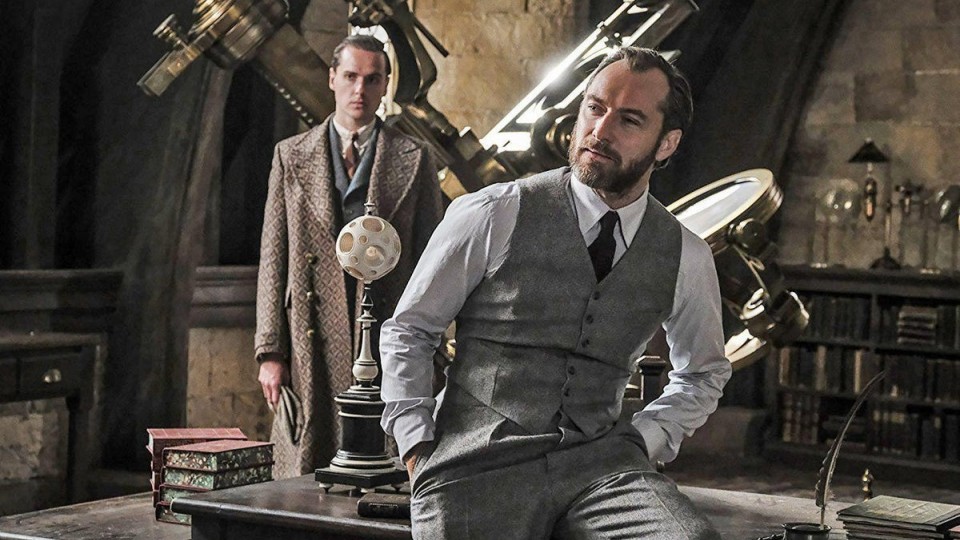
But by the end of The Crimes of Grindelwald, not only had Grindelwald been set-up as the “big bad” of the three – no, five! – film arc, but a young Albus Dumbledore (played by Jude Law) had been moved into position. Yep… Turns out, we are not seeing a genuinely-new, standalone corner of a beloved world, but seeing it slowly evolve back into the inescapable story of the characters and settings we already know. Nothing, it seems, can happen in the Wizarding World without falling back on Hogwarts.
Make or Break
After the unexpected critical and commercial disappointment of Fantastic Beasts: The Crimes of Grindelwald, Warner Bros. initiated an intentional slowdown of the franchise’s production. The every-other-year formula was retired as creatives went back to the drawing board. A second screenwriter was brought on to assist Rowling for future entries. Then, filming of a third Fantastic Beasts film started (get this) March 16, 2020 – literally the day the world shut down for COVID-19. Maybe it was a sign, because the film’s production has been cursed since…
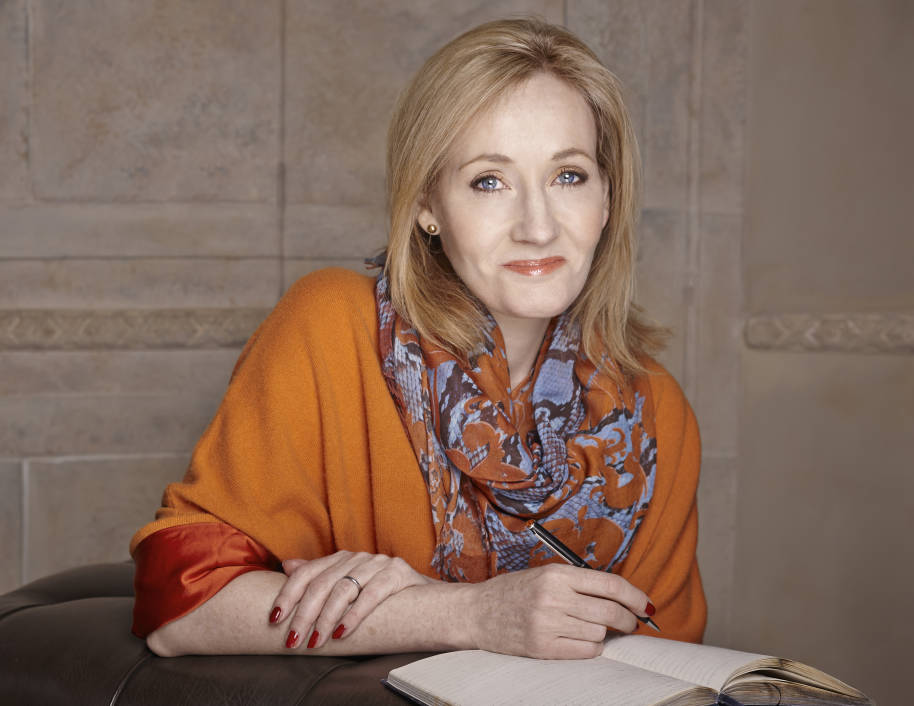
In 2019, J. K. Rowling herself took up an unusual crusade by joining in the “culture wars” of the era against portions of LGBTQ+ community. At first, Rowling held to the line that her divisive comments on transgender peoples’ rights had merely been taken out of context… but then she wouldn’t stop clarifying them to worse ends. Obviously, Rowling is within her rights to voice her perspective on socio-political issues, but her opinion reads as uncharacteristic given the author’s otherwise staunch support for progressive politics, gay rights, and the young, diverse, politically-active audience she herself fostered – and indeed, shaped into progressives – through Harry Potter.
Nearly every Wizarding World star including Daniel Radcliffe, Rupert Grint, Emma Watson, and Fantastic Beast’s Eddie Redmayne loudly, publicly disavowed Rowling’s stance, which has also earned condemnation from prominent Potter fan sites, GLADD, Stonewall, Warner Bros., and Universal Studios. (Vladimir Putin and American political conservatives crafting anti-LGBTQ+ legislation have directed cited and applauded Rowling’s tweets and essays on the subject – endorsements which Rowling rejects.)
Rowling has largely exited the spotlight by avoiding interviews, red carpets, or high profile Potter retrospectives in favor of, apparently, staying home and writing Fantastic Beasts and anti-trans think-pieces. Regardless of your opinion on the matter, you must admit: it’s a very odd wagon for Rowling to hitch her legacy to – seemingly custom-made to make her an enemy of the generation shaped by (and most likely to purchase and consume) her work. It’s unclear if Rowling thinks she’ll somehow be proven “right” in her anti-progress stance one day – even posthumously – but what is certain is that it’s poisoned the well for many Potter devotees today, who can’t overcome the “ick” factor inherent in adding to her billion dollar wealth.
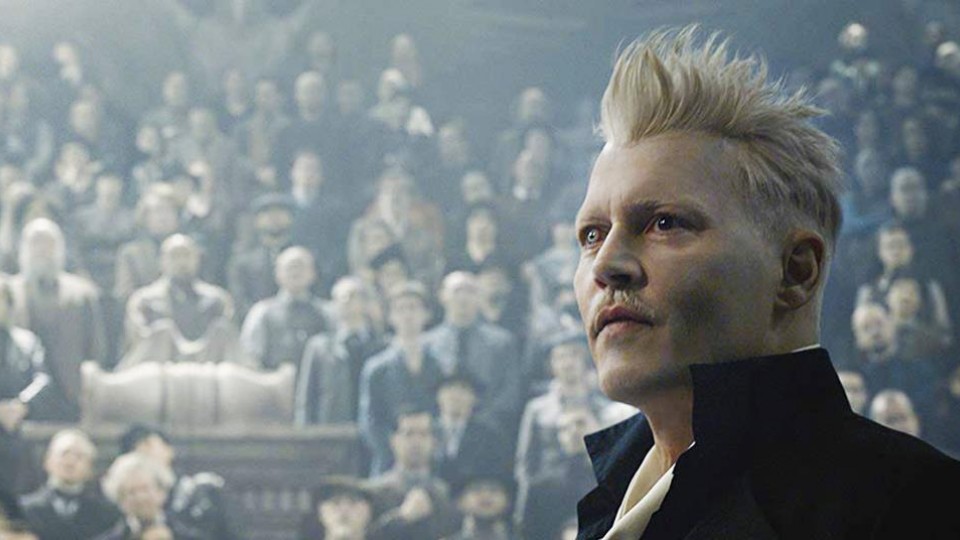
Johnny Depp had already made headlines in 2016 for an acrimonious divorce from his ex-wife Amber Heard, who alleged that Depp abused her during their relationship. In 2018 – just after The Crimes of Grindelwald exited theaters, new accusations and audio released as part of a court case saw headlines frame Depp as a “wife beater.”
Scores of Wizarding World fans vowed to boycott any further films with Depp involved. In November 2020, he announced that he was stepping out of his by-then central role of the Fantastic Beasts villain Gellart Grindelwald. (He’d shot just one scene for the third film, but contractually was still paid his reported $17 million salary.)
As part of a contentious and highly-public court battle between Depp and Heard, later releases of audio tapes would eventually recast Heard herself as the aggressor in the pair’s arguments, causing another faction of fans to suggest they’d boycott any further Fantastic Beasts films if Depp was not in them. In other words, a lose-lose.
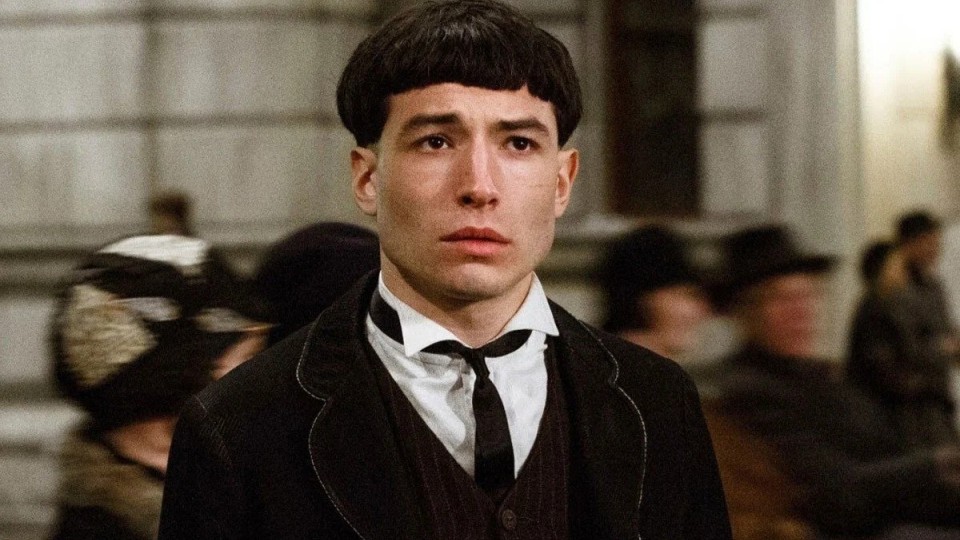
Fantastic Beast’s other star – Ezra Miller – has their own fair share of issues. In April 2020, Miller was filmed apparently choking a woman and throwing her to the ground at a bar in Reykjavik, Iceland. Then, on March 28, 2022 Miller was arrested for another bizarre alleged physical confrontation at a bar that allegedly ended in the actor stealing people’s wallets and threatening to kill them. Miller was pulled from the promotional circuit for the third Fantastic Beasts film (set for release just two weeks after the actor’s arrest), likewise axing them from promotion around the long-delayed 2023 flick The Flash (likely contributing to its underperformance, too.)
Which brings us to the not-much-anticipated third entry, Fantastic Beasts: The Secrets of Dumbledore. Now fully re-connected to the Potter mythos, film three’s marketing revolved not around Scamander (or, y’know, fantastic beasts), but Jude Law’s Dumbledore, Mads Mikkelsen’s Depp-replacing take on Grindelwald, and a return to Hogwarts and Hogsmeade. The plot follows the Wizarding World’s role in World War II (positioning Grindelwald as a literal Hitler), leaving New York and Paris behind for Berlin. (Hey – the Fantastic Beasts series is globe-trotting, just like fans had speculated!)
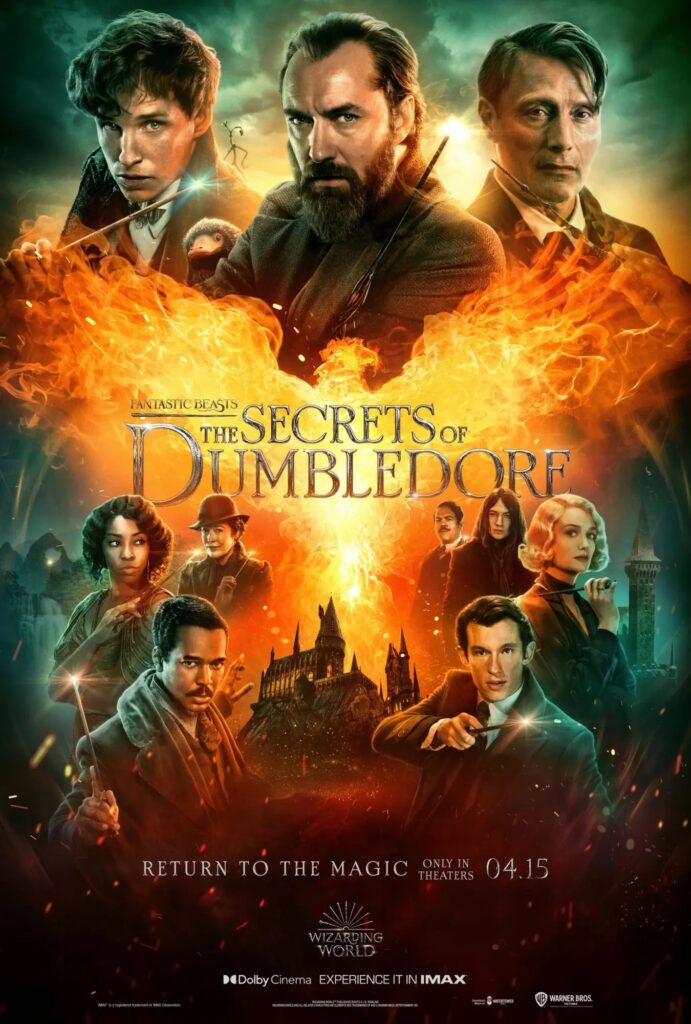
When it was released in in April 2022, Fantastic Beasts: The Secrets of Dumbledore received not just its own middling reviews (it has a very bad 46% on Rotten Tomatoes, and a cringey 47 on Metacritic)… it was a financial flop. Earning just $400 million (against a known $200 million budget), the film likely ended up losing money for Warner Bros. once marketing costs are considered. Put simply, Fantastic Beasts wasn’t the hit Warner Bros. hoped, and it was certainly not the next Harry Potter.
According to an in-depth dissection of Fantastic Beasts’ “derailment” by Variety, low enthusiasm, mediocre reviews, the Rowling, Depp, & Miller controversies, and the financial failure of The Secrets of Dumbledore have pretty much made it obvious: it’s unlikely we’ll ever see the fourth or fifth film in the series, leaving an embarrassingly dangling abandoned story thread in one of the largest modern franchises on Earth.
But more devastatingly, Fantastic Beasts has failed to open up a new corner of the Wizarding World. It hasn’t made fans fall in love with a new set of characters. And worse, it hasn’t presented a place and time that fans are eager to inhabit. And that’s a big problem for Universal, who bet big on Fantastic Beasts as the anchor of their new theme park… Read on…
